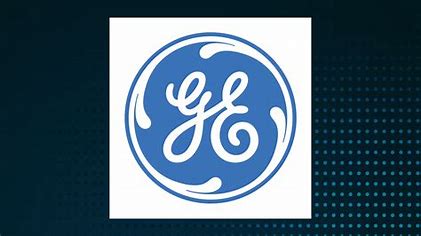GE Aerospace (NYSE: GE):
- Business Overview:
- GE Aerospace, as a result of the split, has become a focused entity within the aviation industry, primarily involved in the manufacturing and repair of jet engines.
- With a streamlined portfolio, GE Aerospace stands to benefit from the growing demand for aftermarket services, driven by delays in new jet deliveries by major aircraft manufacturers like Boeing and Airbus.
- Financial Strength:
- The company boasts a robust revenue base, derived mainly from its services segment, which constitutes over 70% of its total revenues.
- Despite the challenges posed by the aviation industry’s cyclical nature, GE Aerospace has forecasted significant operating profits by 2028, indicating a strong financial outlook.
- Strategic Initiatives:
- GE Aerospace’s commitment to returning up to 75% of its free cash flow to shareholders through dividends and share repurchases demonstrates a shareholder-friendly approach.
- By focusing on shareholder value and capital efficiency, GE Aerospace aims to enhance its attractiveness to income-oriented investors while retaining potential for capital appreciation.
- Analyst Sentiment:
- Analysts’ bullish stance on GE Aerospace is underscored by its Strong Buy consensus rating and an average price target implying substantial upside potential.
- Positive forecasts for the company’s earnings and growth prospects further reinforce investor confidence in its long-term trajectory.
GE HealthCare Technologies (NASDAQ: GEHC):
- Business Focus:
- GE HealthCare Technologies operates within the medical device industry, specializing in the development and distribution of medical equipment and pharmaceutical diagnostics.
- While it may not exhibit the same growth trajectory as GE Aerospace, GE HealthCare Technologies plays a crucial role in the healthcare sector, offering essential products and services.
- Financial Performance:
- Despite slower growth compared to GE Aerospace, GE HealthCare Technologies remains financially resilient, with a steady revenue stream and a forecasted free cash flow of $1.8 billion for 2024.
- Its presence in the healthcare industry ensures a stable demand for its products and services, contributing to consistent performance over the long term.
- Valuation Considerations:
- Valuing GE HealthCare Technologies presents challenges due to industry dynamics and varying growth rates within the medical equipment sector.
- However, recent price target increases by analysts suggest a positive outlook for the company’s stock, indicating confidence in its future prospects.
- Investment Potential:
- While GE HealthCare Technologies may not offer the same level of growth as GE Aerospace, it remains an attractive long-term investment option, particularly for investors seeking stability and exposure to the healthcare sector.
- With a Moderate Buy consensus rating and an average price target indicating upside potential, GE HealthCare Technologies presents an opportunity for investors looking for a steady income stream and potential capital appreciation.
- GE Aerospace emerges as the preferred choice for investors prioritizing growth and income, driven by its strong position in the aviation industry and commitment to shareholder value.
- GE HealthCare Technologies remains a solid long-term investment option, offering stability and exposure to the healthcare sector, albeit at a slower growth rate compared to GE Aerospace.
In summary, both GE Aerospace and GE HealthCare Technologies present compelling investment opportunities, catering to different investor preferences and risk profiles. While GE Aerospace stands out for its growth potential and shareholder-friendly initiatives, GE HealthCare Technologies offers stability and resilience in a vital sector of the economy. Investors should consider their objectives and risk tolerance when evaluating these stocks for their portfolios.
